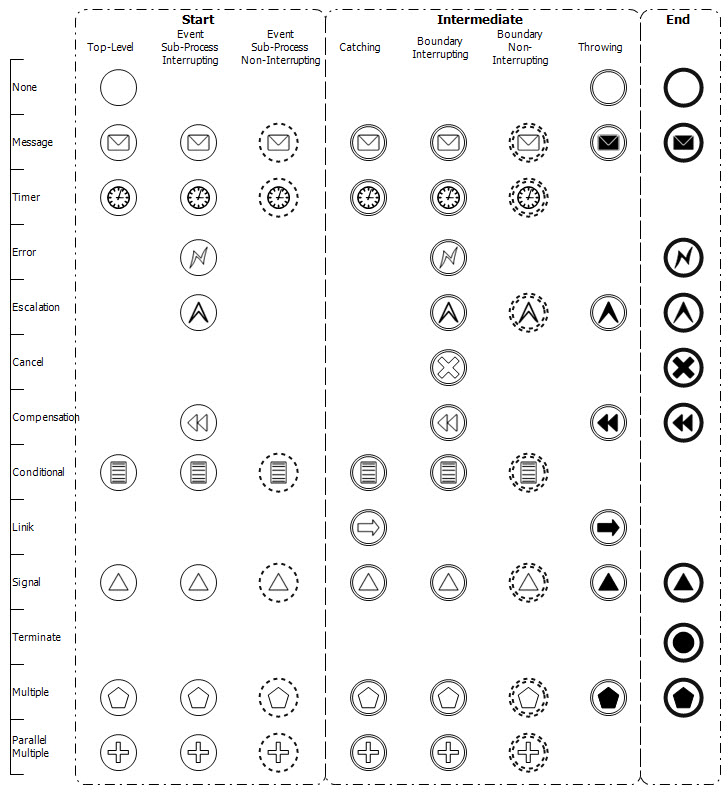Events |

|

|

|
||
Events |

|

|

|

|
|
|
||
An event is something that happens during the course of a business process. These events affect the flow of the process and often have a cause (trigger) or an impact (result). They can start, interrupt, or end the flow. Events are used for e.g. exception handling to interrupt the activity or to trigger an activity to start (timer event). Start Events can only react to (“catch”) a Trigger. End Events can only create (“throw”) a Result. Intermediate Events can catch or throw Triggers. For the Events, Triggers that catch the markers are unfilled, and for Triggers and Results that throw the markers are filled.
Events are represented as circles with open centers to allow internal markers to differentiate different triggers or results.

The default template in QPR Modeling Client does not have a corresponding element to event.
Events can be of type start, intermediate or end in a business process flow. Events have different triggers/results depending on the event type.
Event types are illustrated below.

Creating and Modifying Events
Tool Palette of the BPMN template contains tools for creating events with the event type and the trigger or result specified. When you have selected the right tool in the Tool Palette, create a new event by pointing and clicking the location for it in the diagram.
You can edit the properties of events (such as the attributes listed in the tables below) by right-clicking on the element in the diagram view and selecting Set Process Step Properties... For further information on this dialog, see topic "Process Step Dialog" in QPR Modeling Client - User's Guide. Using the pop-up context menu, you can also change directly some of the event properties, such as the event type.
Start Event
The start event indicates where a particular process will start. Start events can have none, message, timer, conditional, signal, and multiple type triggers. All start events are catching the trigger and this is indicated with an unfilled marker inside the Event symbol.
Intermediate Event
Intermediate events occur between a start event and an end event. It will affect the flow of the process, but will not start or (directly) terminate the process. Intermediate events can have none, message, timer, error, compensation, cancel, conditional, link, signal, and multiple type triggers. Some intermediate events can catch or throw the trigger and this is indicated with unfilled or filled marker inside the Event symbol.
End Event
The end event indicates where a process will end. End events can have none, message, error, cancel, compensation, signal, terminate, and multiple type results. All end events are throwing the result and this is indicated with filled marker inside the Event symbol.